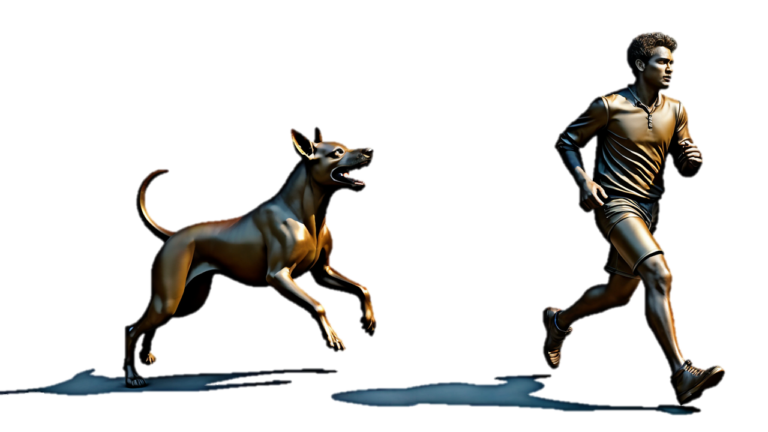
Animal Attacks, Dog Bites
Dogs make great pets, and that’s why nearly 90 million households, according to the American Pet Products Association, have dogs as part of their family. That said, a dog bite or attack, however, can have traumatizing if not fatal results. According to the Centers for Disease Control and Prevention, nearly 4.5 million dog bites happen annually while 800,000 of those attacks require medical attention.
According to the Insurance Information Institute (III),
- Liability claims related to dog bites and other dog-related injuries cost homeowners insurers $797 million in 2019…
- The number of dog bite claims nationwide rose to 17,802 in 2019 from 17,297 in 2018—a 2.9 percent decrease…
- The average cost per claim increased by 14.7 percent in 2019. The average cost paid out for dog bite claims nationwide was $44,760 in 2019 up from $39,017 in 2018. The average cost per claim nationally has risen 134 percent from 2003 to 2019, due to increased medical costs as well as the size of settlements, judgments and jury awards given to plaintiffs, which are trending upwards.
Further, the III states that California has the highest dog bite claims in the United States (2,396 in 2019, which is up from 2,166 in 2018). California is followed by Florida and New York. These statistics are serious and show there’s a lot at stake when a person in California is attacked by a dog.
But dogs are not the only animals that can harm another person or the property of another person or entity. Other pets specifically and other animals generally can attack, bite, or otherwise harm people. Whenever any animal attack or dog bite occurs, you are entitled to file a claim or lawsuit. Here’s what you should know about animal attacks and dog bites that occur in California.
Understanding Personal Injury Cases and Animal Attacks in Los Angeles
In California, under most circumstances, the doctrine of strict liability applies to cases of animal attacks and dog bites. A defendant will be held liable even if he was neither negligent nor reckless when a domestic or wild animal under his control or care attacks another person or otherwise is a substantial factor in another person’s injury. To note, you don’t have to have broken skin in order for an injury to qualify as a reason to file a claim. The elements of an animal attack are slightly different when referring to domestic versus wild animals

Domestic Animals & Elements of a Personal Injury Claim
Elements in a domestic animal attack lawsuit are similar to other personal injury claims and include:
1. The defendant owned, kept, or controlled the domestic animal;
2. The animal was found to have an unusually dangerous propensity;
3. The defendant knew or should have reasonably known that the animal had this dangerous propensity;
4. The plaintiff was harmed; and
5. The animal’s unusually dangerous propensity was a substantial factor in causing harm to the plaintiff.
Whether or not a domestic animal has a propensity to be dangerous or vicious is a factual question that the jury must determine.
Some common domestic animals that harm others include:
- Cats
- Pet rats
- Ferrets
- Horses
- Goats
- Sheep
- Pigs
- Birds.
Wild Animals & Elements of a Personal Injury Claim
A person may be strictly liable for an injury caused by a wild animal, too, because wild animals are considered inherently dangerous. People who own, keep, or control wild animals will be held liable for any injury or harm done by the wild animals regardless of what precautions the owner took. The elements that must be proven by a preponderance of the evidence to establish a personal injury claim include:
1. The defendant owned, kept, or controlled the wild animal (e.g., saved a squirrel and started to feed and care for it regularly);
2. The plaintiff was harmed (e.g., bite); and
3. The defendant’s squirrel was a substantial factor in causing the plaintiff’s injury (e.g., bacterial infection).
The question of whether or not an animal is a “wild animal” can be a question of law for the court to decide or a question of fact for the jury to decide if California courts have already addressed it.
To note, California prohibits ownership of certain wild animals, like wolves, bears, and big cats. Further, a personal injury claim based on a wild animal attack is generally only viable against property owners and not the government for animal attacks on public land.
Defenses to Animal Attack Claims
Some defense to animal attacks that could pose a challenge to your personal injury claim include:
- Assumption of the Risk. If you know a wild animal is present and still approach it or consent to hold, play, feed it, etc., and then are bitten, your claim could be challenged.
- Trespass. If you trespassed on another person’s private property, then that landowner or person living on the property may have a defense against your claim.
Understanding Personal Injury Cases & Dog Bites in Los Angeles
Dog bites have their own specific statute in California because the danger is serious and very real. It’s important to keep in mind that California’s dog bite rule is an exception to the domestic animal rule: while owners of domestic animals have a defense if there was never knowledge that the animal had a vicious propensity, dog owners are strictly liable regardless of whether or not the owner had knowledge or reasonably should have known that the dog had a vicious propensity. To succeed at a dog bite case, however, certain elements must still be proven by a preponderance of the evidence.
Elements of a Dog Bite Personal Injury Claim
The elements that must be proven in a dog bite lawsuit are similar to the elements that must be satisfied in other personal injury cases. According to Civil Code § 3342(a), this type of an injury claim can succeed when:
1. It’s found that the defendant is the owner of the dog;
2. The dog bit the plaintiff while the plaintiff was in a public place or lawfully on the defendant’s private property––a person is lawfully on private property when invited by the owner (express or implicit invitation) or was performing some task required by law (e.g., a utility person checking a water line);
3. The plaintiff was harmed; and
4. The defendant’s dog was a substantial factor and caused the defendant’s injury or property damage.
When these four elements are satisfied, you likely will have a successful case. But there are things to keep in mind that can pose challenges to your personal injury claim.
Defenses to the Dog Bite Rule
There are defenses, or––more specifically––exceptions to the rule, that can be used in dog bite incidents. You should be aware of these defenses or exceptions because they can pose a challenge to your claim if they can be invoked.
- Assumption of Risk. If you knew the dog had a propensity to be vicious, you may have assumed the risk and the defendant may be able to use this defense.
- Contributory Negligence. If you provoked the dog in any way, and this provocation caused it to attack you, then the defendant can raise this defense.
- Trespass. If you trespassed or otherwise entered private property unlawfully, then you cannot recover compensation under the Dog Bite Statute.
- Relevant Profession. If you are a veterinarian, vet assistant, kennel worker, or work with dogs in any other capacity, you are aware of the risks and, if the bite occurs while the dog is in your care, the defendant may have a valid defense.
Dog Breeds with the Strongest Bite
There are certain dogs to be careful around. Canine Journal provides a list of dog breeds that have the strongest bite according to PSI––pound-force per square inch.
1. Kangal: 743 PSI
2. American Bandogge: 731 PSI
3. Cane Corso: 700 PSI
4. Dogue De Bordeaux: 556 PSI
5. Tosa Inu: 556 PSI
6. English Mastiff: 556 PSI
7. Dogo Canario: 540 PSI
8. Dogo Argentino: 500 PSI
9. Wolfdog: 406 PSI
10. Leonberger: 399 PSI
11. Akita Inu: 350-400 PSIRottweiler: 328 PSI
This list doesn’t include Pit Bulls, which have been banned in many cities though not in Los Angeles. Los Angeles County has tried to pass a ban on pit bulls in the past, but the controversial measures did not pass.
Common Dog Bite Injuries
Most dog bites require no medical attention. Some dog bites may break the skin, but the majority of those bites, too, do not require medical attention apart from cleansing the wound and applying some ointment. When dog bites require medical attention, the injury can range from minor to fatal. The most common dog bite-related injuries include:
- Cuts, abrasions, scrapes
- Bruises
- Puncture wounds
- Tissue or muscle loss
- Fractured or broken bones
- Bacterial infections
- Nerve damage
- Paralysis
- Disfiguration
- Death.
The physical injury isn’t the only type of injury that can occur. Many people attacked by dogs suffer mental and emotional trauma and this type of trauma can materialize as anxiety, depression, nightmares, bed-wetting, embarrassment (especially if there’s scarring), post-traumatic stress disorder, or other problems.
What Compensation Can You Seek in Animal Attack or Dog Bite Cases?
Like all personal injury claims, you can seek compensatory damages in the form of economic and non-economic damages. This includes:
- Reimbursement for paid medical expenses
- Payment for future medical expenses
- Lost wages and lost income
- Loss of earning capacity
- Pain and suffering
- Mental anguish
- Loss of enjoyment or consortium.
In some cases, punitive damages may also be available, but that’s only when you can prove that malice, fraud, or oppression were used.
Retain an Animal Attack & Dog Bite Attorney in Los Angeles to Get Just & Fair Compensation
To get the right kind of help you need for your specific animal attack or dog bite case in Los Angeles, you need the right personal injury attorney with relevant experience and knowledge. We help align your needs with an attorney in Los Angeles who is in the best position to help you. A personal injury case and the attainment of just and fair compensation most often rely on the attorney you hire. Contact us today to learn more about how we can help.

